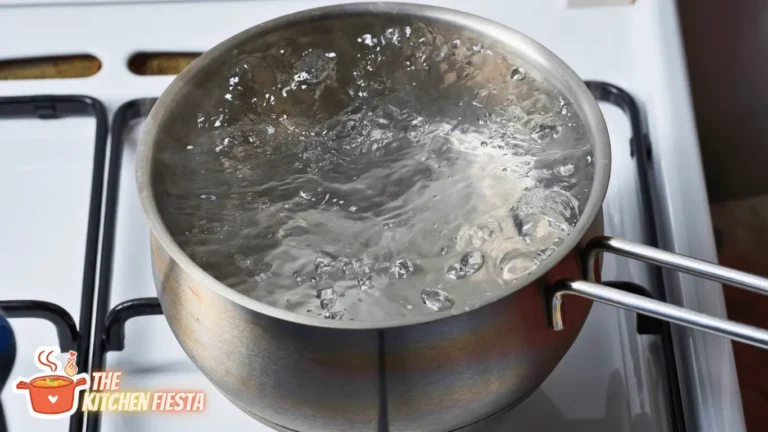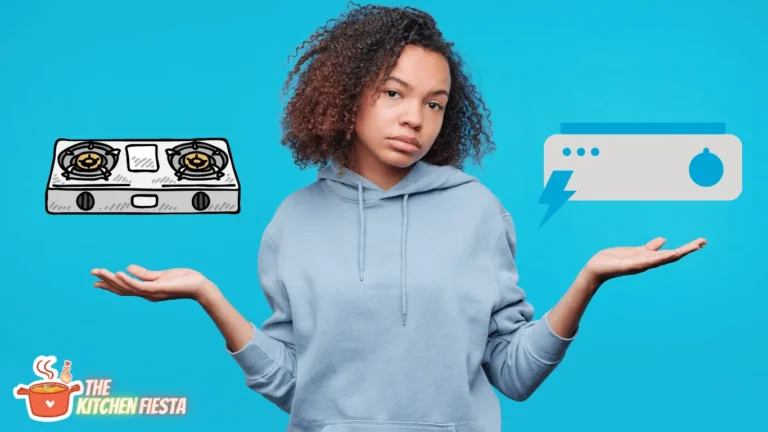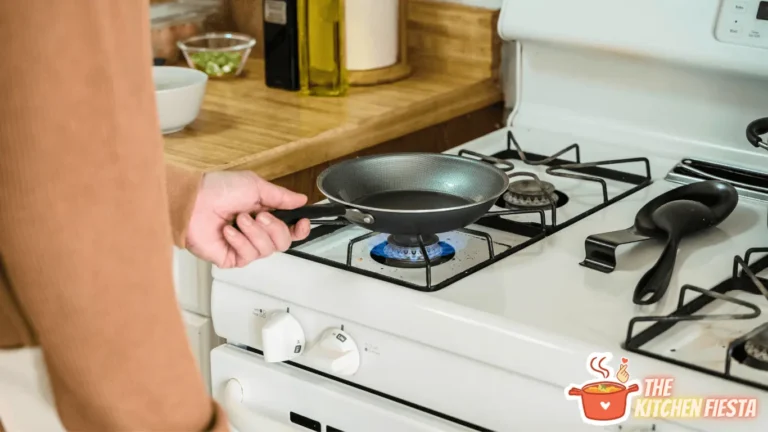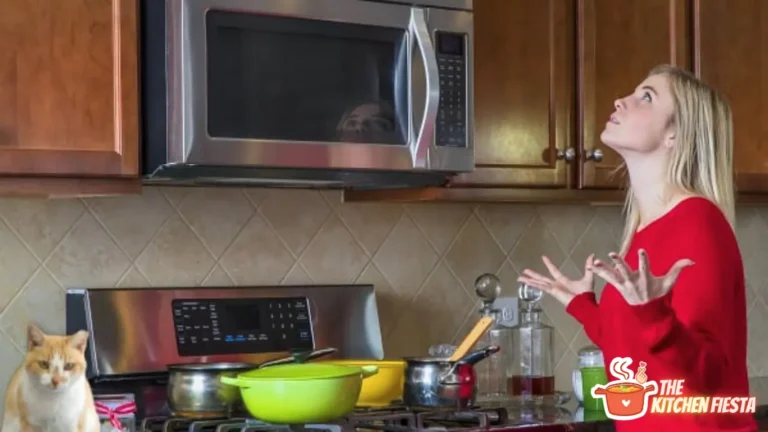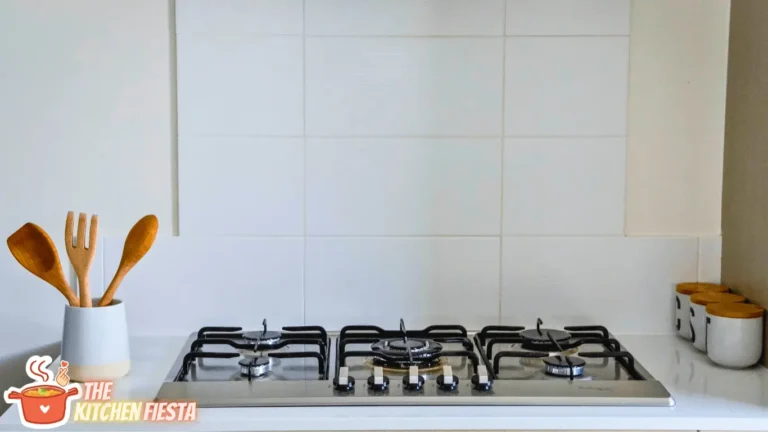Why Is My Stove Clicking? Common Causes and Solutions
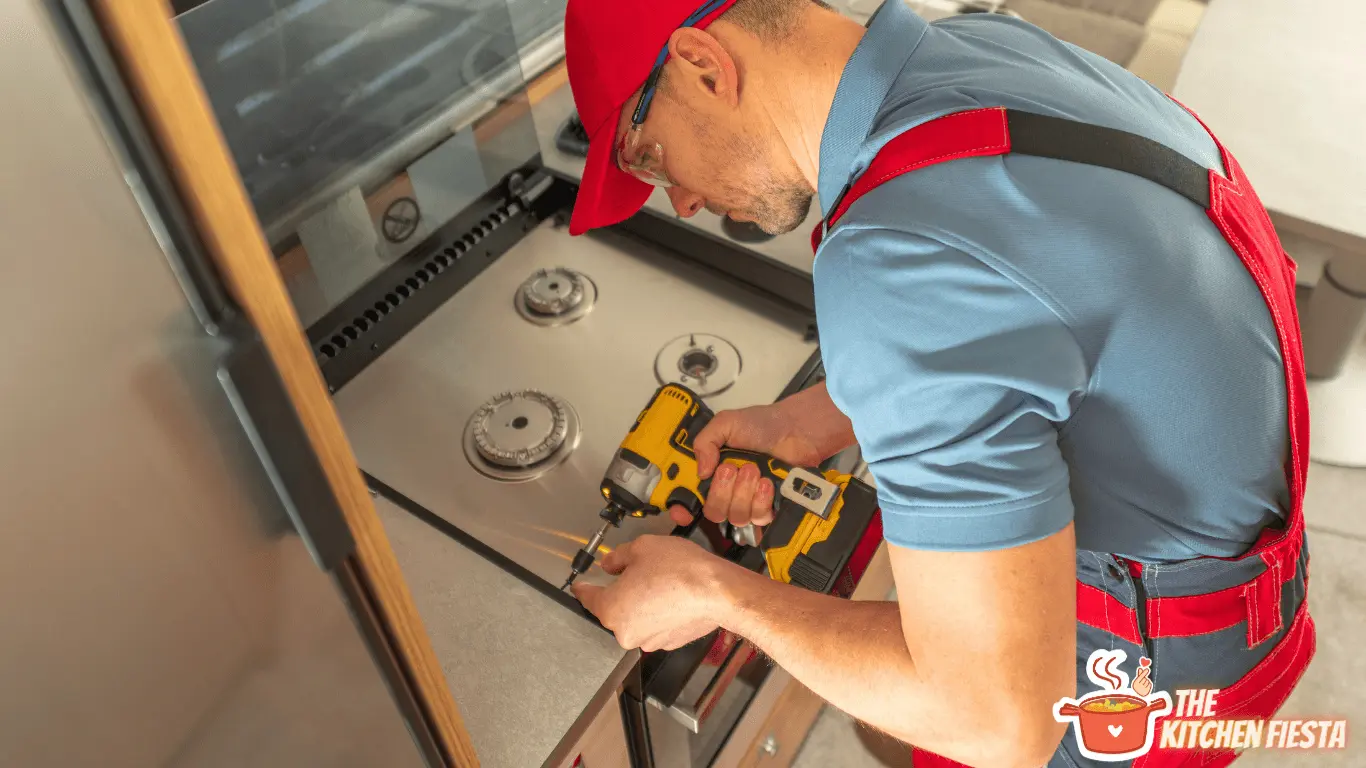
The persistent clicking of a gas stove can be an aggravating puzzle for many homeowners, but fear not, for we have the answers you seek. This common issue is often rooted in the stove’s ignition system, and various potential culprits are behind the incessant sound. The reasons can be diverse, from a dirty burner hindering gas flow to a misaligned burner cap disrupting ignition. Even loose or corroded connections in the electrical system may contribute to the frustrating clicking symphony.
But fret not, as there is a silver lining – an array of solutions awaits. Whether it’s a simple cleaning routine or realigning the burner cap, restoring your stove’s tranquility is within reach. Delve into our comprehensive guide, and bid farewell to the enigma of the clicking gas stove as we uncover the common causes and practical remedies for this bothersome occurrence.
Understanding Your Stove’s Functionality
A gas stove is a common appliance in many households. It has many components that work together to provide heat to cook food. Understanding how these components function is crucial in maintaining and troubleshooting your stove.
The main components of a gas stove include the burner, igniter, control valves, and thermocouple. The burner is where the gas is ignited to produce heat. The igniter is responsible for creating a spark to ignite the gas. The control valves regulate the flow of gas to the burner. The thermocouple is a safety device that shuts off the gas supply if the flame goes out.
When you turn on the stove, the control valve opens, allowing gas to flow to the burner. The igniter creates a spark to ignite the gas, and the burner produces heat. Once the burner reaches the desired temperature, the control valve adjusts the gas flow to maintain the temperature.
The thermocouple is a safety device that detects the presence of a flame. The thermocouple signals the control valve to shut off the gas supply if the flame goes out. This prevents gas from flowing into your home and causing a fire or explosion.
Keeping your stove clean and well-maintained is essential to ensure it functions properly. Dirt, grease, and food particles can clog the burner, causing it to malfunction. Loose or corroded connections can also cause issues with the igniter and control valves.
Common Reasons for Stove Clicking
Stove clicking is a common issue that people face while cooking. It can be frustrating and concerning, but it is usually not a significant problem. There are several reasons why a stove might click, including a faulty ignition switch, dirty igniters, and loose wiring.
1. Faulty Ignition Switch
A faulty ignition switch is a common cause of stove clicking. The ignition switch sends a spark to the burner to ignite the gas. If the switch is faulty, it may not be able to send the spark, causing the stove to click. In this case, the switch needs to be replaced. Calling a professional technician to replace the switch is recommended, as it can be dangerous to do it yourself.
2. Dirty Igniters
Dirty igniters can also cause stove clicking. If the igniters are dirty or clogged with food debris, they may be unable to send a spark to the burner. In this case, the igniters need to be cleaned. Turn off the stove and remove the burner grates and caps to clean the igniters. Use a soft brush or cloth to clean the igniters and the surrounding area. Dry the igniters thoroughly before replacing the burner caps and grates.
3. Loose Wiring
Loose wiring can also cause stove clicking. If the wiring is loose or damaged, it may not be able to send a spark to the burner. In this case, the wiring needs to be repaired or replaced. Calling a professional technician to repair or replace the wiring is recommended, as it can be dangerous to do it yourself.
Potential Dangers of a Clicking Stove
A clicking stove can be a nuisance, but is it dangerous? The short answer is no; a clicking stove is not inherently dangerous. However, some potential dangers are associated with a stove that clicks continuously or unexpectedly.
Here are some of the potential dangers to be aware of:
- Gas buildup: If the stove is clicking but not igniting, gas can build up in the area around the stove. If a spark or flame ignites this gas, it can cause an explosion or fire.
- Carbon monoxide poisoning: If the stove is not burning gas properly due to a faulty igniter, it can produce carbon monoxide. Carbon monoxide is odorless and can be deadly if inhaled in high concentrations.
- Electrical shock: If there is a problem with the electrical system in the stove, such as loose or corroded connections, it can cause the stove to keep clicking. Someone touching the stove while it clicks could receive an electrical shock.
It’s important to note that these dangers are relatively rare and can be avoided by dealing with a clicking stove promptly. If you notice your stove clicking continuously or not igniting correctly, it’s best to turn it off and call a professional to diagnose and fix it.
Professional Diagnosis and Repair
If none of the DIY solutions worked, it’s time to call a professional. A certified technician can diagnose the problem and perform the necessary repairs.
Here are some common issues that a professional may find:
- Faulty Igniter: The igniter may need to be replaced if it is not producing a spark or if it is producing a weak spark.
- Spark Module Issues: If the spark module is not functioning correctly, it may need to be replaced.
- Control Valve Problems: If the control valve is not sending gas to the burner, it may need to be replaced.
- Wiring Problems: A professional can fix any wiring issues, such as a loose connection or a damaged wire.
A professional will have the necessary tools and experience to handle the repair safely and efficiently. They will also be able to identify any potential safety hazards and take the necessary precautions to prevent accidents.
It’s important to note that repairing a gas stove with the proper training and tools can be safe. Gas leaks and electrical shocks can cause severe injury or even death. It’s always best to leave the repairs to a qualified professional.
Preventive Measures and Maintenance
Regular maintenance and cleaning of a gas stove can prevent the clicking of the igniter and extend the appliance’s life. Here are some preventive measures that can be taken to keep the stove in good condition.
1. Regular Cleaning
Cleaning the stove regularly can prevent grease and dirt buildup, which can cause the burner cap to be misaligned. It is recommended to clean the stove once a week or more often if it is used frequently. Here are some tips for cleaning a gas stove:
- Turn off the gas and let the stove cool down before cleaning.
- Remove the grates, burner caps, and knobs.
- Soak the grates and burner caps in warm, soapy water.
- Clean the stove surface with a non-abrasive cleaner and a soft cloth.
- Dry the parts thoroughly before reassembling them.
2. Timely Servicing
Gas stoves should be serviced by a professional technician at least once a year. Regular servicing can identify potential problems, such as gas leaks or faulty burners, before they become significant. Here are some things that a technician may do during a service:
- Check the gas pressure and flow rate.
- Inspect the burners and igniters for damage.
- Clean the burner heads, igniters, and pilot holes.
- Check the alignment of the burner caps.
- Replace any worn or damaged parts.
Conclusion
In conclusion, a clicking gas stove can be a frustrating issue to deal with. However, it is essential to remember that it is not typically a dangerous situation. By following the steps outlined in this article, homeowners can troubleshoot and likely resolve the problem without professional assistance.
Some common causes of a clicking stove include a burner cap being out of alignment, food debris or moisture on the burner or igniter, and a faulty spark igniter. By checking each of these potential issues, homeowners can identify the root cause of the problem and take the appropriate steps to resolve it.
If the issue persists even after attempting to troubleshoot it, it may be time to call in a professional appliance repair service. They can provide a more in-depth analysis of the issue and make any necessary repairs or replacements.
Overall, homeowners can ensure that their kitchen remains a safe and functional space for cooking and entertaining by staying vigilant and addressing any issues with a gas stove as soon as they arise.
Frequently Asked Questions
What causes an electric stove to make a clicking noise?
An electric stove can make a clicking noise if the burner is dirty or wet. This can cause the burner to spark continuously, even if not turned on. To fix this issue, clean the burner with a soft brush or cloth and ensure it is scorched before using it again.
How can I stop my gas stove from clicking after cleaning?
If your gas stove continues to click after cleaning, it could be due to residual moisture or debris. To fix this issue, ensure the burner is completely dry and debris-free before using it again. If the problem persists, it may be necessary to replace the igniter.
What should I do if all four burners on my gas stove keep clicking?
If all four burners on your gas stove keep clicking, it could indicate a problem with the control valve or the igniter. In this case, calling a professional to diagnose and fix the issue is best.
Why does my GE gas stove igniter click when turned off?
If your GE gas stove igniter keeps clicking when turned off, it could be due to a faulty switch or control module. In this case, calling a professional to diagnose and fix the issue is best.
How can I fix my stove if the igniter keeps clicking?
If your stove igniter keeps clicking, it could be due to various issues, including a dirty or wet burner, a faulty control module, or a problem with the igniter itself. To fix this issue, clean the burner and ensure it is completely dry before using it again. If the problem persists, replacing the igniter or calling a professional to diagnose and fix the issue may be necessary.

